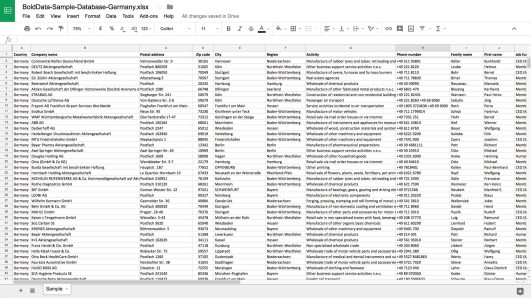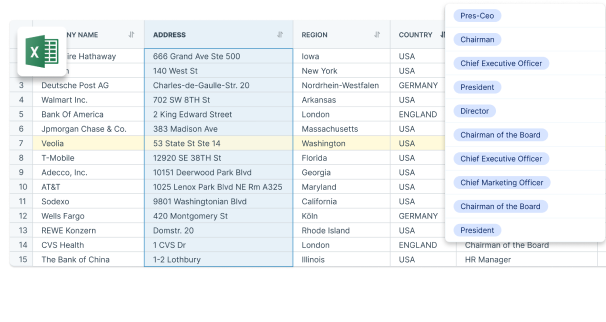In today’s rapidly evolving business landscape, data has emerged as a cornerstone of success, driving strategic decision-making, enhancing customer experiences, and fueling innovation. However, the abundance of data comes with its own set of challenges, including data quality issues, security risks, and compliance concerns. This is where data governance steps in as a game-changer for businesses seeking to harness the full potential of their data assets. In this insightful guide, we’ll delve into the secrets of success with data governance, exploring its importance, benefits, challenges, and actionable insights for implementation.
Understanding the Essence of Data Governance
At its core, data governance refers to the framework and processes designed to ensure the quality, integrity, and security of an organization’s data assets throughout their lifecycle. It encompasses a range of activities, including data management, data stewardship, metadata management, and compliance management, aimed at maximizing the value of data while minimizing risks and ensuring regulatory compliance.
Why Data Governance Matters
- Data Quality Improvement: Effective data governance processes help enhance data quality by establishing standards, policies, and procedures for data management, validation, and cleansing, ensuring that businesses can rely on accurate and reliable information for decision-making.
- Risk Mitigation: By implementing robust data governance practices, organizations can mitigate risks associated with data breaches, privacy violations, and regulatory non-compliance, safeguarding sensitive information and protecting brand reputation.
- Regulatory Compliance: Data governance plays a crucial role in ensuring compliance with regulatory requirements such as GDPR, CCPA, HIPAA, and SOX by establishing controls, accountability mechanisms, and audit trails for data handling and usage.
- Operational Efficiency: Streamlining data management processes through effective governance enables businesses to improve operational efficiency, reduce redundancies, and eliminate silos, leading to faster decision-making and resource optimization.
- Enhanced Decision-Making: By providing a single source of truth and ensuring data consistency and accuracy, data governance empowers organizations to make informed decisions based on reliable insights, driving business growth and innovation.
Challenges of Implementing Data Governance
Despite its numerous benefits, implementing data governance can pose challenges for organizations:
- Organizational Resistance: Resistance to change and lack of organizational buy-in can impede the adoption of data governance initiatives, requiring strong leadership, communication, and stakeholder engagement to overcome.
- Complexity and Scalability: Managing diverse datasets across multiple systems and departments can be complex, requiring scalable and adaptable governance frameworks to accommodate evolving business needs.
- Resource Constraints: Limited resources, including budget, expertise, and technology infrastructure, can hinder the successful implementation and maintenance of data governance programs, necessitating careful resource allocation and prioritization.
Actionable Insights for Successful Data Governance
To unlock the full potential of data governance and drive business success, consider the following insights:
- Define Clear Objectives and Goals: Establish clear objectives and goals for your data governance initiative, aligning them with business priorities and strategic objectives to ensure alignment and relevance.
- Engage Stakeholders and Leadership: Secure buy-in from key stakeholders and leadership to garner support and commitment for data governance initiatives, emphasizing the value proposition and benefits for the organization.
- Implement Agile and Iterative Approaches: Adopt agile and iterative approaches to data governance implementation, allowing for flexibility, experimentation, and continuous improvement based on feedback and learnings.
- Leverage Technology and Automation: Invest in technology solutions and automation tools to streamline data governance processes, enhance efficiency, and reduce manual effort, allowing resources to focus on value-added activities.
Hypothetical Example:
Imagine you’re a data quality manager at a large corporation grappling with data inconsistency and compliance challenges. After implementing a robust data governance framework in collaboration with BoldData, you successfully streamline data management processes, improve data quality, and ensure regulatory compliance. As a result, your organization experiences enhanced decision-making, operational efficiency, and risk mitigation, driving business growth and success.
In conclusion, data governance serves as a foundational pillar for business success, enabling organizations to harness the full potential of their data assets while mitigating risks and ensuring compliance. By implementing robust data governance solutions from BoldData, businesses can unlock the secrets of success and thrive in today’s data-driven world.
Call to Action:
Don’t miss out on this opportunity to unlock the secrets of success with data governance. Partner with BoldData today to implement robust data governance solutions tailored to your business needs. Contact us at +31(0)20 705 2360 or sales@bolddata.nl to get started.

